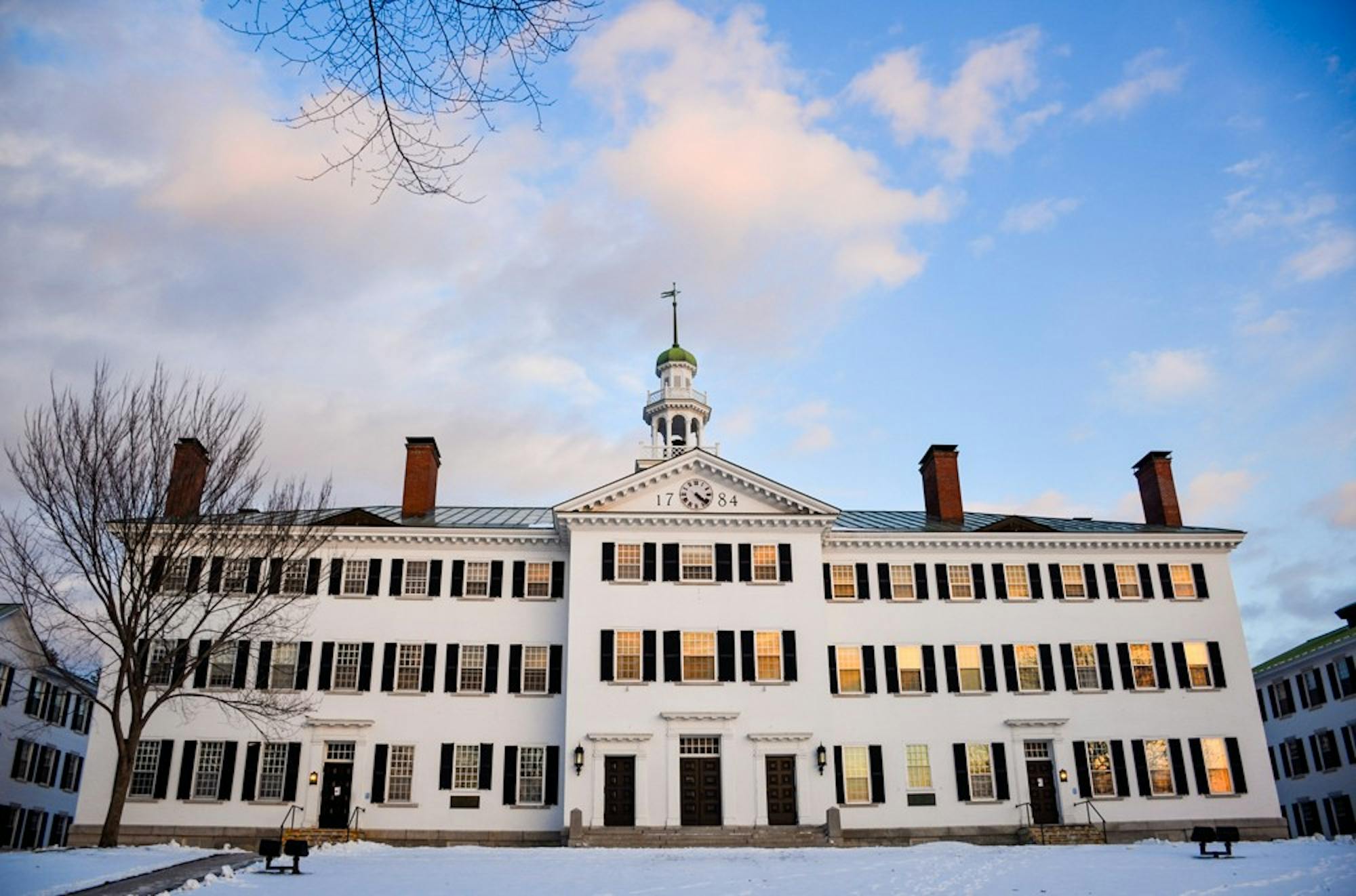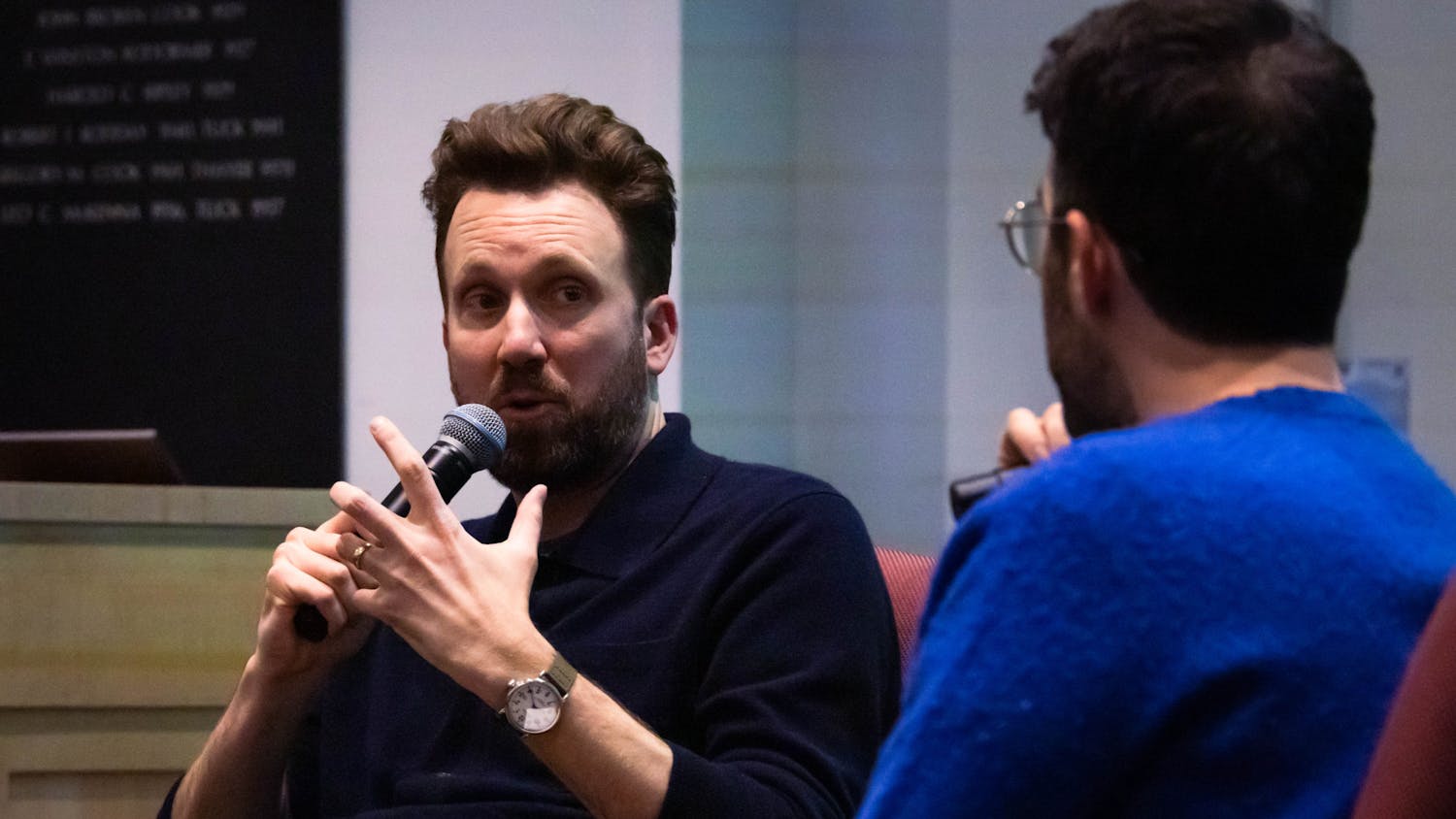One of Dartmouth’s many perks is the opportunity to learn from professors or guest lecturers who are highly decorated in their fields. Over the years, Dartmouth has hosted award-winning artists, writers and even former heads of state, allowing students the chance to take classes with an array of well-known instructors.
Some students jump at the opportunity to learn from high-profile individuals. Madeleine Shaw ’25, who studies government, Middle Eastern Studies and Russian, said she enrolled in WGSS 66.28, “War, Nationalism and Sexual Violence in Southeast Europe” because Atifete Jahjaga, the former president of Kosovo, taught the class.
According to Shaw, the course did not fulfill any of her major, minor or distributive requirements — but she was eager to take the class for what she called a “once in a lifetime opportunity.”
“The experience to learn from a head of state during your undergrad is very unique and [one that] I wouldn’t be able to get that anywhere, anytime else,” she said.
Other students have taken classes with notable instructors for their unique perspectives. Sair Shaikh ’26 took his first-year seminar, ENGL 7.60, “The Art of the Essay,” with Alexander Chee, a notable essayist and author of the critically acclaimed novel “Edinburgh.” A math major, Shaikh said he hoped taking the class would allow him to learn from Chee’s “nuanced and interesting” outlook.
Students also have more personal reasons for enrolling in well-known professors’ courses. Tara Melhem ’26, an international student from Lebanon, took ARTH 42.02, “Post-War Art from the Middle East: The Case of the Lebanese Civil War” to feel more connected to her home country while at Dartmouth. Rabih Mroué, an award-winning visual artist, taught the course.
“Coming [to Dartmouth] was really tough because nobody else spoke Arabic,” Melhem said. “I didn’t have a Lebanese community to lean on. When I saw this professor was coming and he’s from Lebanon and speaks Arabic, that felt like a sense of home.”
Melhem also convinced a friend, Jadin Scott ’26, to take the class with her as a way to help Scott learn about Lebanese culture.
Scott said that Mroué “wanted to share with us what his artistic process was like.” Many assignments were centered around art projects, in which students would choose a theme and relate it to a personal experience, according to the syllabus.
Mroué often asked students to think about how their personal backgrounds informed how they thought about course materials, according to the syllabus. Scott added that at the end of her course with Mroué, he “wrote all [the students] a personalized letter.”
“It was more about nurturing us as creative thinkers and artists than lecturing us about his accomplishments or the material,” Scott added.
Melhem added that Mroué was receptive to student feedback about how the class should be run.
“We’d … want to have class outside and then he took us to Bema to have class outside,” Melhem said.
Similarly, Shaw praised the personal and immersive nature of Jahjaga’s class.
“We went to her house, which was the Montgomery Fellows House, and she cooked traditional Kosovan food for us,” Shaw said. “We just sat around in a circle and she shared her full life experience. [She shared] lots of stories about how growing up in a war was foundational to what she did during her presidency and why.”
Though students expressed broad support for courses taught by well-known professors, several of them felt the College could do a better job at advertising when notable guest lecturers come to campus. Melhem noted that she doesn’t “hear about a lot of courses” during course election.
“There’s so many courses that my friends are taking that I’m like ‘What, where’d you find that? Where did you hear about that?’” she said. “I don’t know how they could improve the whole system, but I think that they should do a better job highlighting these courses.”
Shaikh added that a professor’s renown isn’t as important to him as the contributions they make within the Dartmouth community.
“It’s not about famous as in they are known by the world,” Shaikh said. “I don’t care about that as much as 20 students telling me this professor is cool. I think that’s more famous to me than a person that’s actually famous.”




